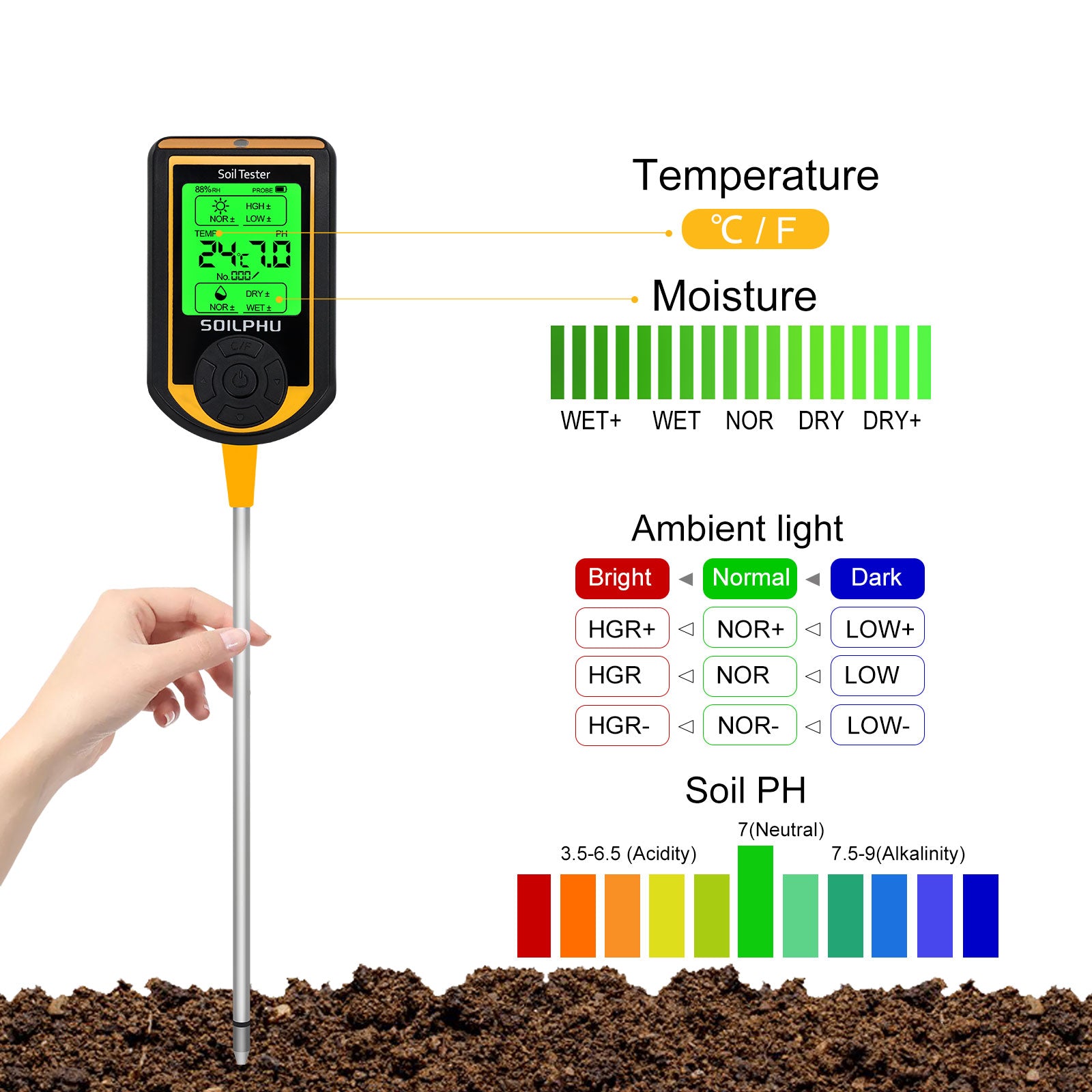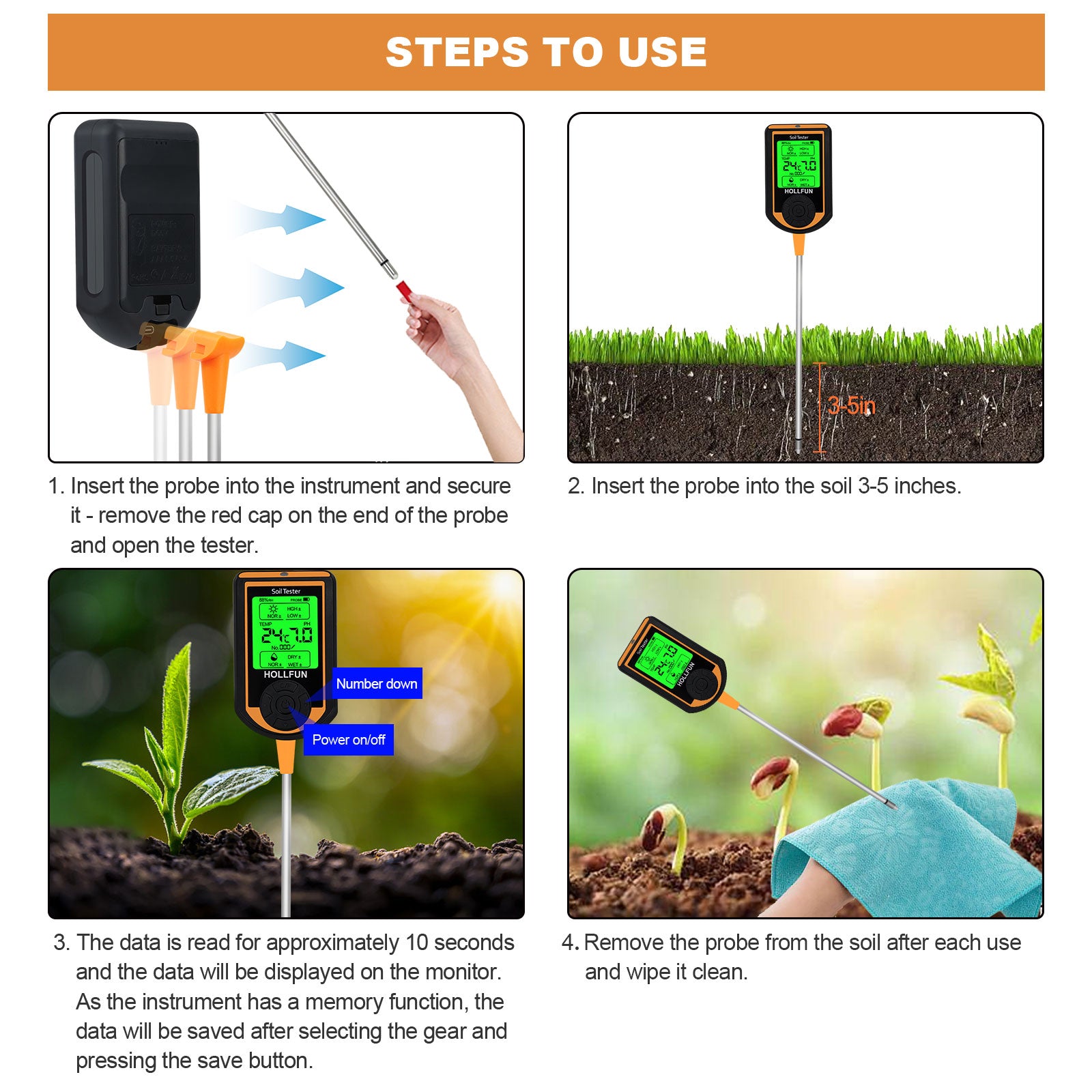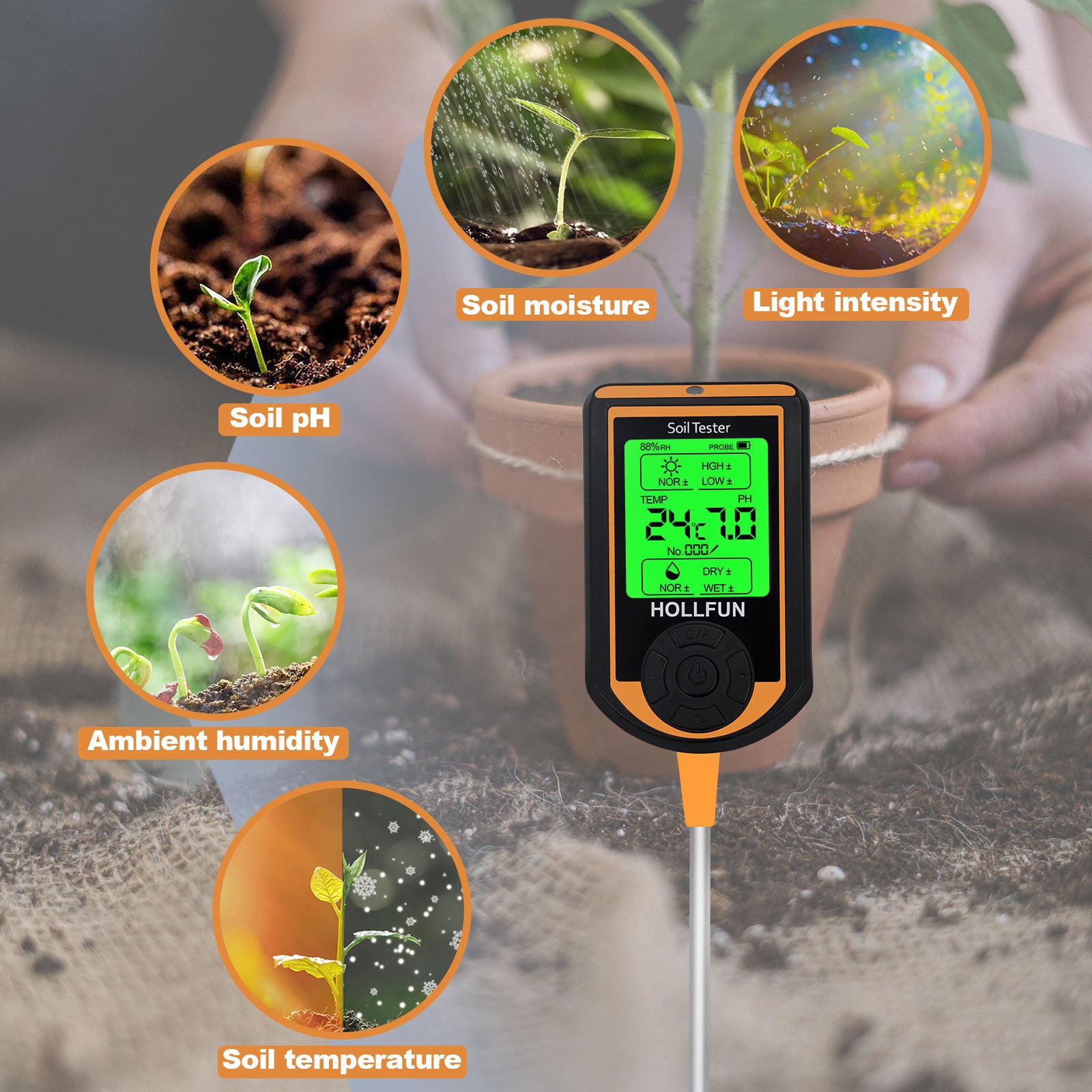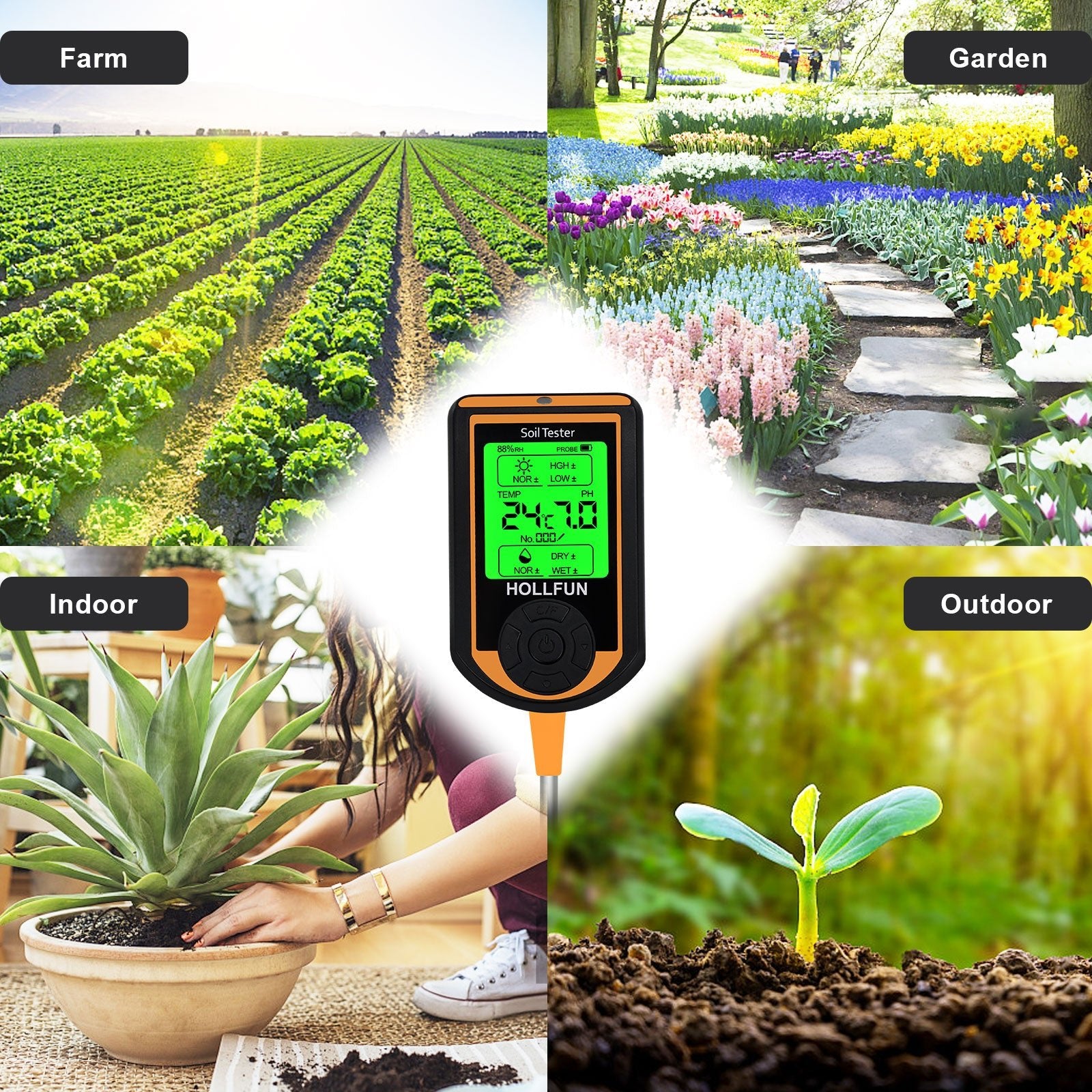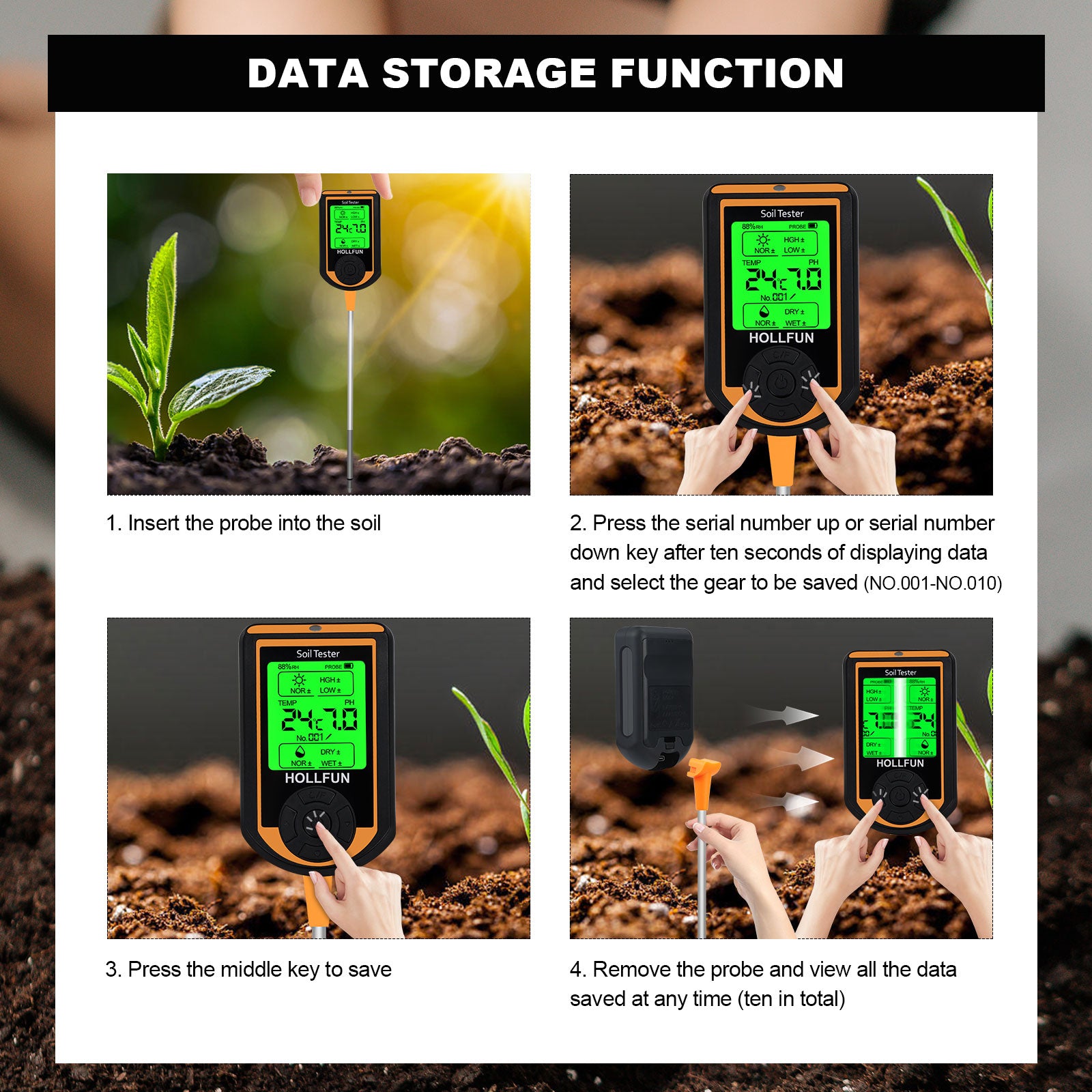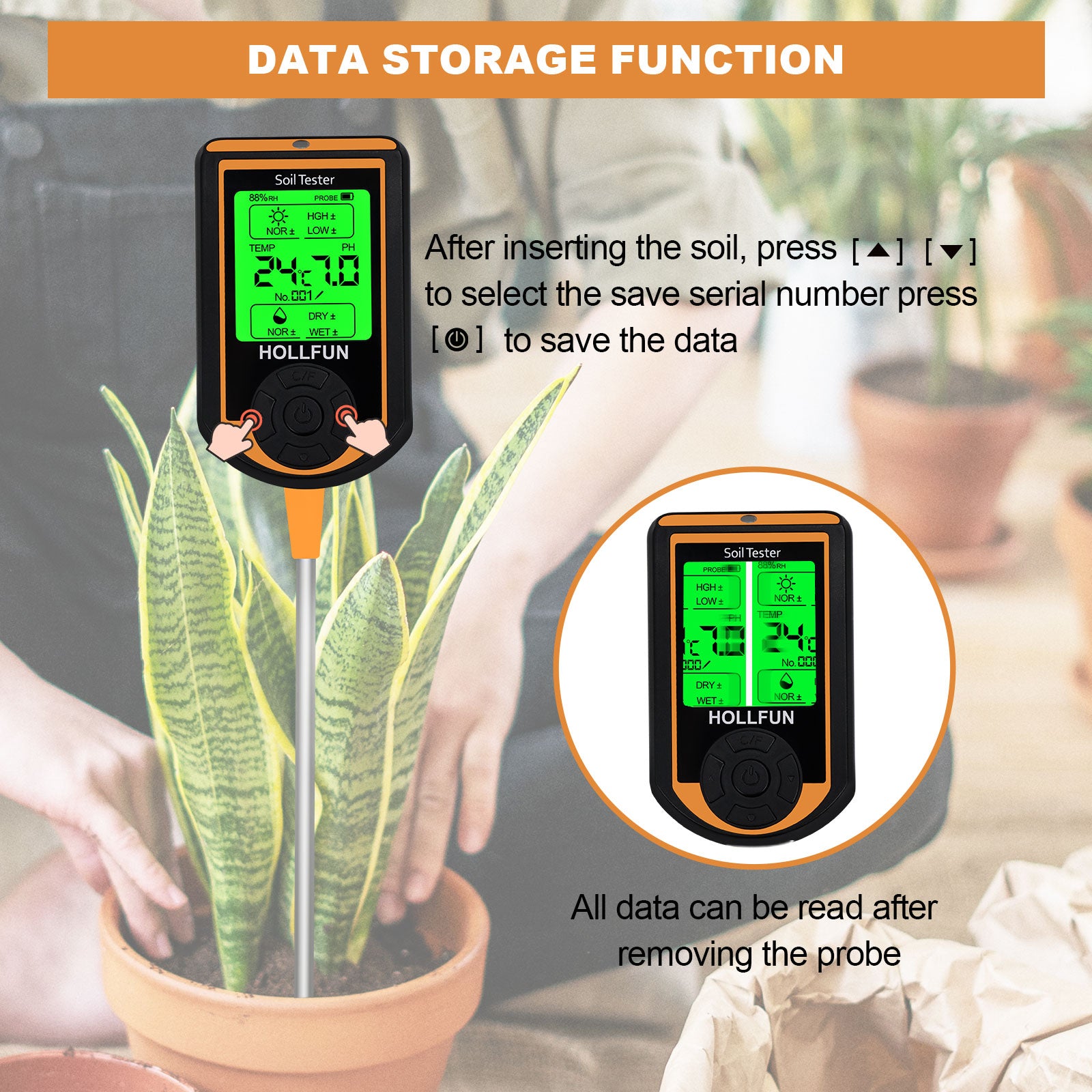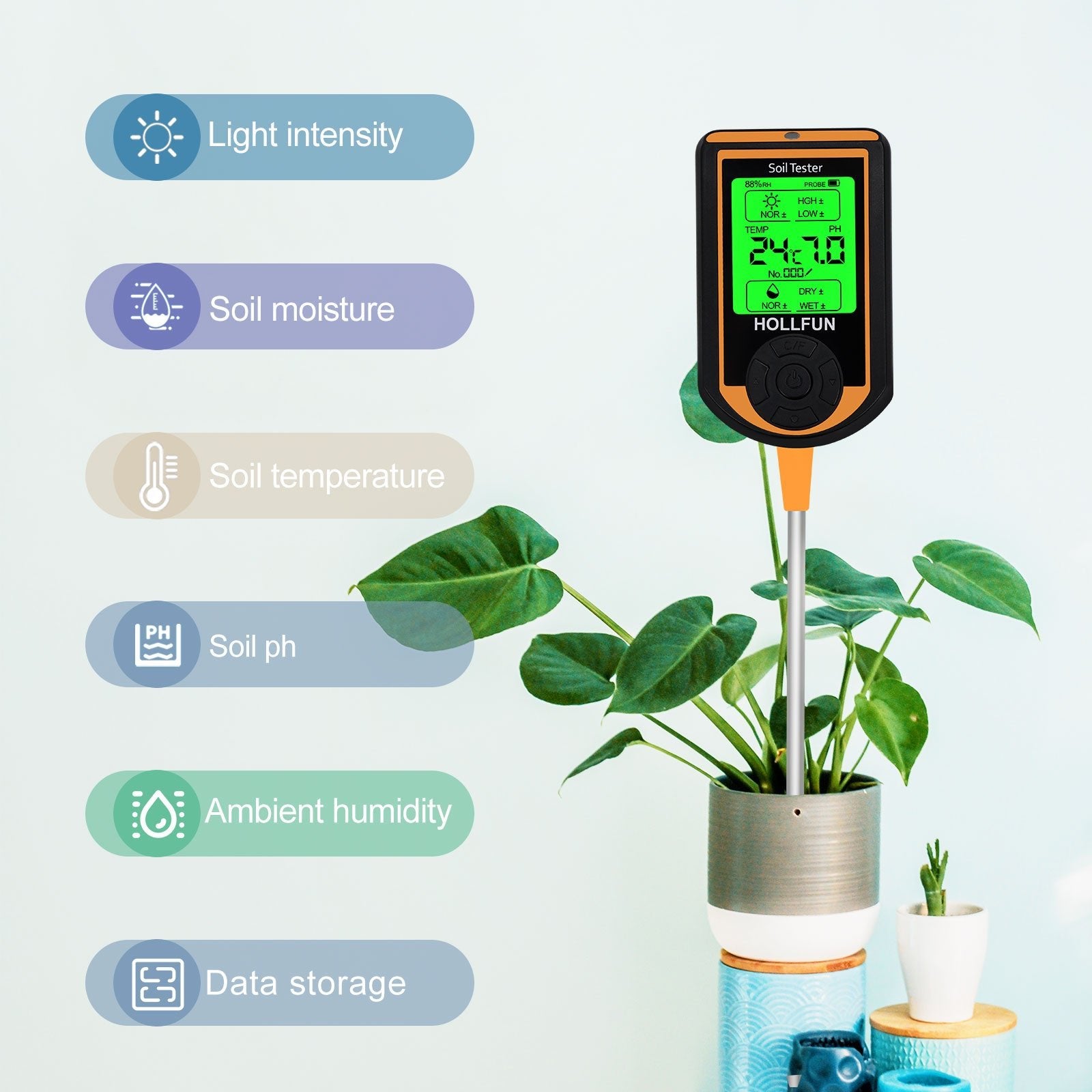Introduction:
Conclusion:
- The health of our soil is a critical factor in ensuring the success of agricultural endeavors, gardening, and environmental sustainability. Understanding the composition of the soil is essential for optimal plant growth and efficient resource management. In this blog post, we will delve into the advantages of using soil testers and how they can revolutionize the way we approach soil analysis.
Precision Agriculture:
- One of the primary advantages of soil testers lies in their ability to provide precise and accurate data about the soil's composition. This information empowers farmers and gardeners to implement precision agriculture techniques. By understanding the specific nutrient levels, pH, and moisture content of the soil, practitioners can tailor their approach, optimizing the use of fertilizers and water resources.
Cost-Effective Resource:
- Soil testing helps in preventing overuse or underuse of essential resources. By knowing the nutrient levels in the soil, farmers can apply fertilizers more efficiently, reducing costs and minimizing environmental impact. This targeted approach not only benefits the farmer's bottom line but also contributes to sustainable agricultural practices.
Improved Yield and Quality:
- A soil tester is a farmer's ally in maximizing crop yield and quality. By ensuring that the soil has the right balance of nutrients, crops are better equipped to reach their full potential. This leads to healthier plants, increased productivity, and higher-quality yields. For gardeners, this translates to more vibrant flowers, lush lawns, and thriving vegetables.
Environmental Conservation:
- Soil testing plays a crucial role in environmental conservation. Knowing the soil's nutrient levels allows farmers and land managers to adopt practices that minimize runoff and leaching of excess nutrients into water bodies. This helps prevent water pollution, protects aquatic ecosystems, and contributes to overall environmental sustainability.
Customized Soil Amendments:
- Based on the results of soil tests, farmers and gardeners can tailor their soil amendments to address specific deficiencies. Whether it's adding organic matter to improve soil structure or adjusting pH levels, the insights provided by soil testers enable a targeted and efficient approach to soil improvement.
Early Detection of Soil Issues:
- Soil testers allow for the early detection of potential issues such as nutrient deficiencies or imbalances. Identifying these problems before they manifest in the health of the plants provides an opportunity for proactive measures. This can prevent crop failure, reduce the need for corrective actions, and ultimately save time and resources.
Educational Tool:
- Soil testing serves as an educational tool, fostering a deeper understanding of the land and its requirements. Farmers, gardeners, and students alike can learn about the intricate relationships between soil composition, plant health, and environmental sustainability. This knowledge can be shared and passed down, contributing to a more informed and environmentally conscious agricultural community.
Conclusion:
- In conclusion, soil testers are invaluable tools for anyone involved in agriculture, gardening, or land management. The precision they offer in analyzing soil composition leads to more efficient resource use, increased crop yields, and a positive impact on the environment. As we continue to embrace sustainable practices, the role of soil testers becomes increasingly vital in cultivating a healthier, more productive planet.



